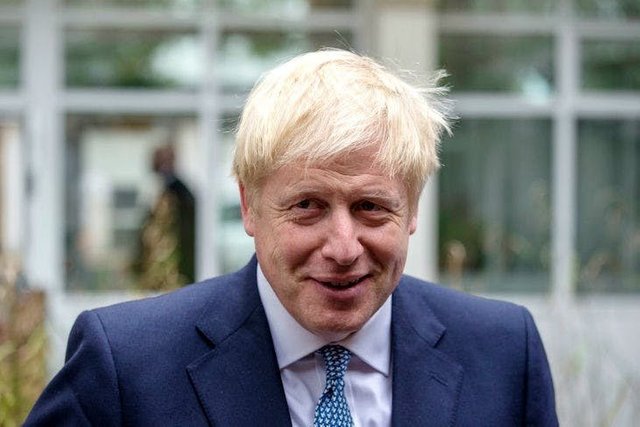Who Is The Real Boris Johnson? Six Essential Stories On The Next British PM
It's time to swot up on the the man who is likely to become UK's new prime minister.
New British Prime Minister Boris Johnson has taken charge with a speed and decisiveness that are historic. Whether he can finish Brexit by October 31—and win a general election—remains to be seen.
However, Johnson has already made a huge imprint on British government and politics in his first days in office.
During his first appearance in the House of Commons, Johnson spoke for two and a half hours and answered 129 questions. It was a tour de force for a man whose personality is so strong and so unique it is easy to forget how smart, how strategic and how intelligent he is.

His friends from college have recounted that he was already thinking about becoming prime minister as an undergraduate, and they all assumed he would get to No. 10 Downing Street.
When Prime Minister David Cameron resigned after losing the referendum on staying in the European Union, it was widely thought that the choice of Theresa May to be prime minister might have meant the end of Johnson's ambitions. However, he may have been fortunate in letting her go first because her exhausting failure and humiliating collapse as a leader created a vacuum in which the vast majority of Conservatives were eager for a strong, aggressive and personally dynamic leader. Johnson's moment had come.
He made clear in his first hours as prime minister that he was about much more than simply leaving the European Union. In the Johnson world, Brexit is a first step toward a better future and not an end in itself.
Much like President Donald Trump with "Make America great again," the new prime minister announced that his goal was to make Britain "the greatest place on Earth."
For the left-wing media, which in Britain is as anti-Johnson as the American media is anti-Trump, Johnson destroyed their effort to describe his movement as racist, white, anti-immigrant, etc., by his choice of a remarkable Cabinet.
As The Telegraph described it, Johnson assembled the "youngest and most ethnically diverse Cabinet in history." The number of female Cabinet members ties the largest number in history. Two of the top government posts are held by Britons of Indian and Pakistani backgrounds.
On his first day in office, Johnson outlined a program that set the stage for a general election campaign, if one is needed. He announced amnesty for 500,000 people in the U.K. illegally, a secure transition for the 2.5 million Europeans currently living in Great Britain and a program to hire 20,000 more police to counter a crime wave that has been growing, along with an increase in funding for both education and the National Health Service.
As his first step toward leaving the European Union and implementing Brexit, Johnson announced that there would be no special arrangement at the border between Northern Ireland and the Republic of Ireland. This was one of the difficult provisions that had destroyed May's prime ministership. Strong supporters of Brexit see a special deal on the Irish border as a backdoor way to keep Britain under the thumb of the European Union.
As a sign of his decisiveness, Johnson simply announced flat out that the provision was dead, and he would not even negotiate with the European Union unless they agreed to drop it. The Brussels bureaucrats responded—predictably—and attacked the Johnson proposal as "hostile, aggressive, and a non-starter."
In his opening days, the new prime minister is sending two defiant signals.
First, to the European bureaucrats in Brussels, he is saying he is serious about leaving and that the U.K. will leave on October 31. Brussels can negotiate or just say goodbye. By the way, if there is a hard Brexit, the U.K. will keep the 34 billion euros that the last government promised to pay the EU as a farewell fee.
Keeping the 34 billion euros also gives the new prime minister a lot of money to spend on tax cuts, schools, health services, etc. As one British observer noted, the U.K. should let the European Union sue. They can't collect the money, so the U.K. can keep it and spend it.